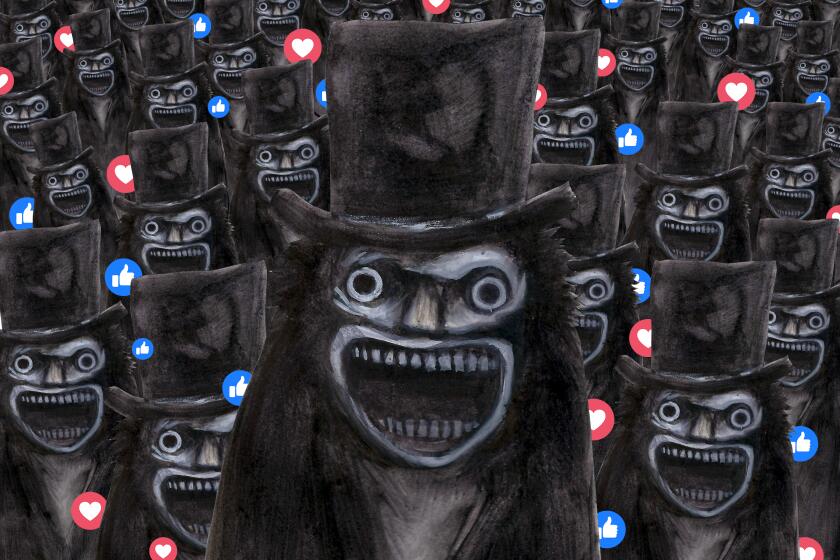Life as it’s seen without filters
A PEERLESS, tireless chronicler of the inner workings and secret lives of American institutions, Frederick Wiseman has long been one of the most respected documentarians in the world. He is also one of our most resourceful independent auteurs.
Eschewing private investment, Wiseman has long pieced together financing through grants and public television funds. After an early falling-out with a distributor, he assumed control of the circulation of his work through his own company, Zipporah. Given how hard it has been to see many of his documentaries outside PBS airings, it was a landmark event for cinephiles when Wiseman, late last year, announced the release of his back catalog on DVD.
Thirty of his 36 films (including all titles mentioned below) are available at zipporah .com, with the rest to follow in coming months.
Wiseman, a lawyer and law professor before he turned to documentaries, made his first film, “Titicut Follies,” in 1967, and found himself promptly embroiled in a legal fight. This unblinking portrait of neglect and abuse at a correctional facility for the criminally insane in Bridgewater, Mass., was banned for years by the state Supreme Court -- the initial ruling called for the destruction of all prints -- because it was found to have violated the privacy of the inmates who had not consented to being filmed.
In his ruling, the judge sounded oddly like a disgruntled reviewer, but his vexed critique of the movie hit on precisely the defining strengths of Wiseman’s work: “Each viewer is left to his own devices as to just what is being portrayed and in what context,” he complained, also noting that “there is no narrative accompanying the film.”
Avoiding exposition, interviews and even a clearly discernible point of view, Wiseman’s films belong to the documentary vanguard of the 1960s; he has been grouped with the Maysles brothers, D.A. Pennebaker and Richard Leacock as pioneering practitioners of so-called cinema verite. Wiseman, for his part, dismisses the tag as a “pompous French term.” He prefers “reality fiction,” a label that acknowledges the inherent contradictions of the process.
Wiseman insists on entering each project without a predetermined thesis, but he would be the first to acknowledge that the very act of filmmaking is fraught with manipulations. The shape and rhythm of the films are found and finessed in the editing room, but immersion is the key to his method. He often shoots -- on 16-millimeter film, still -- more than 100 hours of footage and does minimal preparation because, as he has said repeatedly, the shooting itself is the research.
In a Wiseman film, viewers often find themselves in the same position, obliged to interpret the unfolding events in the absence of overt cues.
The range of topics and places he has covered is breathtaking: “High School” (1968), “Hospital” (1970), “Juvenile Court” (1973), “Canal Zone” (1977), “Zoo” (1993). The bluntness of his titles corresponds with the films’ unadorned majesty.
However monolithic his subject, Wiseman has a way of revealing the complex bureaucratic functionings and unpredictable human interactions within.
He is best known for works with a social-justice bent -- “Titicut Follies,” “Welfare” (1975), “Public Housing” (1997) -- but has shown an interest in every stratum of class, dealing with the culture of materialism in “The Store” (1983) and a resort economy in “Aspen” (1991). He served in the Army after graduation and has made a series of military-themed films, including “Basic Training” (1971) and “Missile” (1987), but also has gone behind the scenes of a dance company (1995’s “Ballet”) and a theater troupe (1996’s “La Comedie Francaise”).
Wiseman’s films have been influential, and not just on other documentarians. Milos Forman screened “Titicut Follies” before shooting “One Flew Over the Cuckoo’s Nest.” Arthur Hiller and Paddy Chayefsky’s “The Hospital” adapts sequences from “Hospital.” Stanley Kubrick borrowed liberally from “Basic Training” in “Full Metal Jacket.”
It’s no surprise that Wiseman’s great films stand as such imposing touchstones. For anyone looking to make sense of modern-day America -- its human institutions and social constructs -- no other body of work comes close.
More to Read
Only good movies
Get the Indie Focus newsletter, Mark Olsen's weekly guide to the world of cinema.
You may occasionally receive promotional content from the Los Angeles Times.










